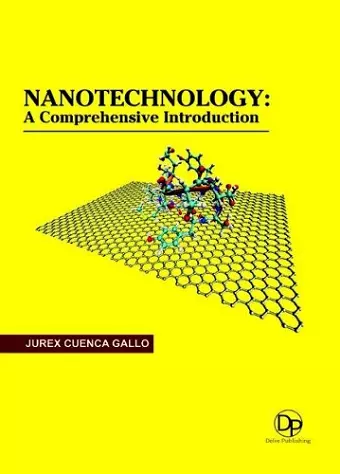Nanotechnology
A Comprehensive Introduction
Format:Hardback
Publisher:Delve Publishing
Published:30th Nov '16
Should be back in stock very soon

Nanotechnology is the engineering of functional systems at the molecular scale. This covers both current work and concepts that are more advanced. “Nanotech” products that are on the market today are mostly gradually improved products where some form of nano-enabled material (such as carbon nanotubes, nanocomposite structures or nanoparticles of a particular substance) or nanotech process is used in the manufacturing process. In their ongoing quest to improve existing products by creating smaller components and better performance materials, all at a lower cost, the number of companies that will manufacture “nanoproducts” will grow very fast and soon make up the majority of all companies across many industries. Scientists have been studying and working with nanoparticles for centuries, but the effectiveness of their work has been hampered by their inability to see the structure of nanoparticles. In recent decades the development of microscopes capable of displaying particles as small as atoms has allowed scientists to see what they are working with. Researchers are developing customized nanoparticles; the size of molecules that can deliver drugs directly to diseased cells in your body. When it’s perfected, this method should greatly reduce the damage treatment such as chemotherapy does to a patient’s healthy cells. Nanotechnology holds some answers for how we might increase the capabilities of electronic devices while we reduce their weight and power consumption. Nanotechnology is having an impact on several aspects of food science, from how food is grown to how it is packaged. Companies are developing nanomaterials that will make a difference not only in the taste of food, but also in food safety, and the health benefits that food delivers. Nanotechnology is being used to reduce the cost of catalysts used in fuel cells to produce hydrogen ions from fuel such as methanol and to improve the efficiency of membranes used in fuel cells to separate hydrogen ions from other gases such as oxygen. Nanotechnology may hold the key to making space-flight more practical. Advancements in nanomaterials make lightweight spacecraft and a cable for the space elevator possible. By significantly reducing the amount of rocket fuel required, these advances could lower the cost of reaching orbit and traveling in space. Many benefits of nanotechnology depend on the fact that it is possible to tailor...
ISBN: 9781680959116
Dimensions: unknown
Weight: unknown
276 pages